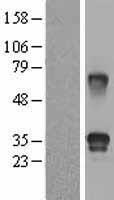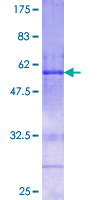order histories, retained contact details for faster checkout, review submissions, and special promotions.
Forgot password?
order histories, retained contact details for faster checkout, review submissions, and special promotions.
Locations
Orders Processing,
Shipping & Receiving,
Warehouse
2 Shaker Rd Suites
B001/B101
Shirley, MA 01464
Production Lab
Floor 6, Suite 620
20700 44th Avenue W
Lynnwood, WA 98036
Telephone Numbers
Tel: +1 (206) 374-1102
Fax: +1 (206) 577-4565
Contact Us
Additional Contact Details
order histories, retained contact details for faster checkout, review submissions, and special promotions.
Forgot password?
order histories, retained contact details for faster checkout, review submissions, and special promotions.
FSTL3 / FLRG
Follistatin-like 3 (secreted Glycoprotein)
Isoform 1 or the secreted form is a binding and antagonizing protein for members of the TGF-beta family, such us activin, BMP2 and MSTN. Inhibits activin A-, activin B-, BMP2- and MSDT-induced cellular signaling; more effective on activin A than on activin B. Involved in bone formation; inhibits osteoclast differentiationc. Involved in hematopoiesis; involved in differentiation of hemopoietic progenitor cells, increases hematopoietic cell adhesion to fibronectin and seems to contribute to the adhesion of hematopoietic precursor cells to the bone marrow stroma. Isoform 2 or the nuclear form is probably involved in transcriptional regulation via interaction with MLLT10.
| Gene Name: | Follistatin-like 3 (secreted Glycoprotein) |
| Synonyms: | FSTL3, FLRG, Follistatin-related protein 3, Follistatin-like protein 3, FSRP |
| Target Sequences: | NM_005860 NP_005851.1 O95633 |
Publications (2)





If you do not find the reagent or information you require, please contact Customer.Support@LSBio.com to inquire about additional products in development.









